UK using Skripal poisoning case to rally European states against Russia: Lavrov
Russian Foreign Minister Sergei Lavrov has lambasted Britain for using the poisoning case of Russia’s ex-double agent Sergei Skripal in the UK to rally its European partners against Moscow at a time when Brexit is isolating London.
“There are no facts which we can address meaningfully,” Russia’s top diplomat said at a press conference following a meeting with his German counterpart Heiko Maas in Berlin on Friday, adding, “It is pointless to have this discussion and we confirmed to our German partners that we see no proof.”
Back on March 4, British authorities said that Skripal, 66, and his 33-year-old daughter, Yulia, had been hospitalized after they were found unconscious on a bench outside a shopping center in the city of Salisbury.
Days later, they announced that both victims had been exposed to Novichok, a highly lethal chemical weapon purportedly developed under a secret Soviet program, accusing Moscow of carrying out the attack yet declining the Kremlin’s request for a sample of the chemical agent.
The Kremlin has vehemently and repeatedly rejected any involvement, saying the substance could have originated from the countries studying Novichok, including the UK itself, Slovakia, the Czech Republic and Sweden.
However, London and Washington, along with their European allies, keep accusing Moscow of having orchestrated the alleged poisoning attack.
Earlier this week, British police named Alexander Petrov and Ruslan Boshirov, two Russian nationals, as the main suspects in the attempted murder of Skripal. The Kremlin was quick in flatly rejecting the accusation as “unacceptable.”
The suspects themselves said, during an interview with the Russia Today television station, that they were innocent tourists who had flown to the UK for fun and visited the city of Salisbury to see its cathedral.
The British authorities, however, accused the suspects of being members of Russia’s GRU military intelligence who “highly likely” conducted the purported poisoning attack, and called their interview an example of “obfuscation and lies.”
Lavrov hit out at London during his visit to the German capital, saying, “The ‘highly likely’ principle isn’t appropriate in this case, which British colleagues are using to rally their European partners against Russia. This is linked to Brexit - that’s why London is doing this.”
He also said that he doubted that evidence furnished by Britain to its allies in the affair was convincing.
On Wednesday, Russian President Vladimir Putin also said that the two suspects were “civilians” and not criminals, adding that there “is nothing criminal here.”
Later on Wednesday however, Britain also summoned Russia's charge d'affaires in London, Russia's RIA news agency said.
In reaction, the Russian Embassy in London posted a series of tweets questioning the credibility of British allegations, citing the intelligence evidence used to build the case for the 2003 invasion of Iraq.
The UK reported another attack on a British couple with the same nerve agent in the nearby town of Amesbury. One of the two citizens, Dawn Sturgess, died in July. Russia strongly rejected the idea that Moscow could have been behind the poisoning incident.
Pezeshkian condemns ‘savage’ US-Israeli attack on school that killed nearly 90
Islamic Jihad extends 'full solidarity' with Iran following Israeli-American aggression
Leader of the Islamic Revolution martyred in cowardly Israeli-American aggression
Iran to continue acting in self-defense until enemy’s aggression ends: UN envoy
True Promise 4: IRGC launches new waves of missiles at Israeli, American targets
Iran to make Zionist criminals and vile Americans regret their actions: Security chief
Hezbollah, Ansarullah warn US-Israeli aggression on Iran to engulf entire region
Russia strongly condemns US-Israeli aggression on Iran, calls for UNSC meeting


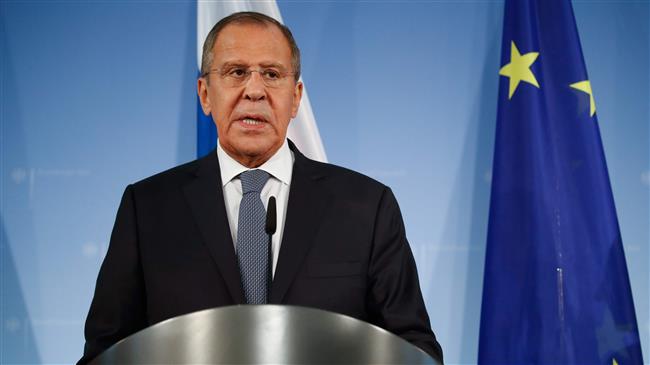


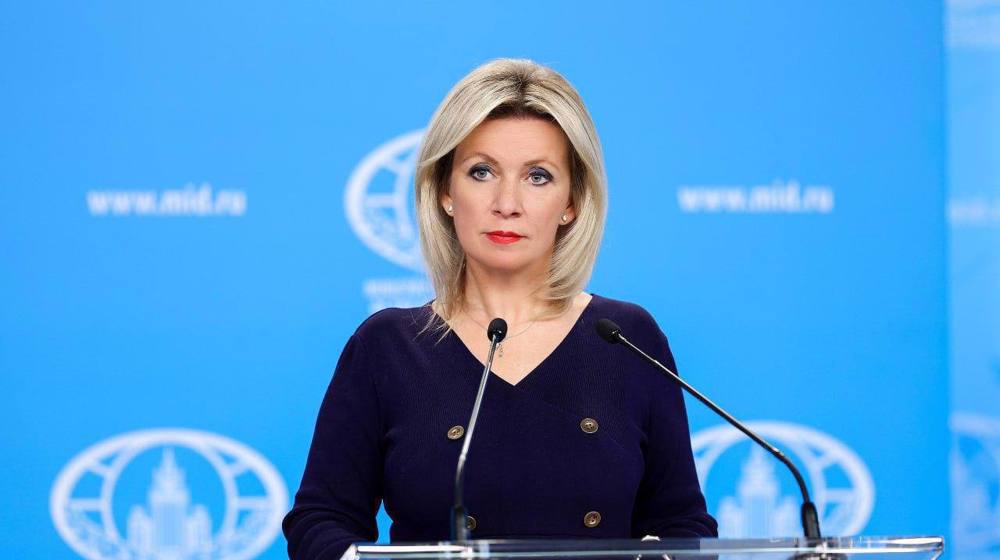
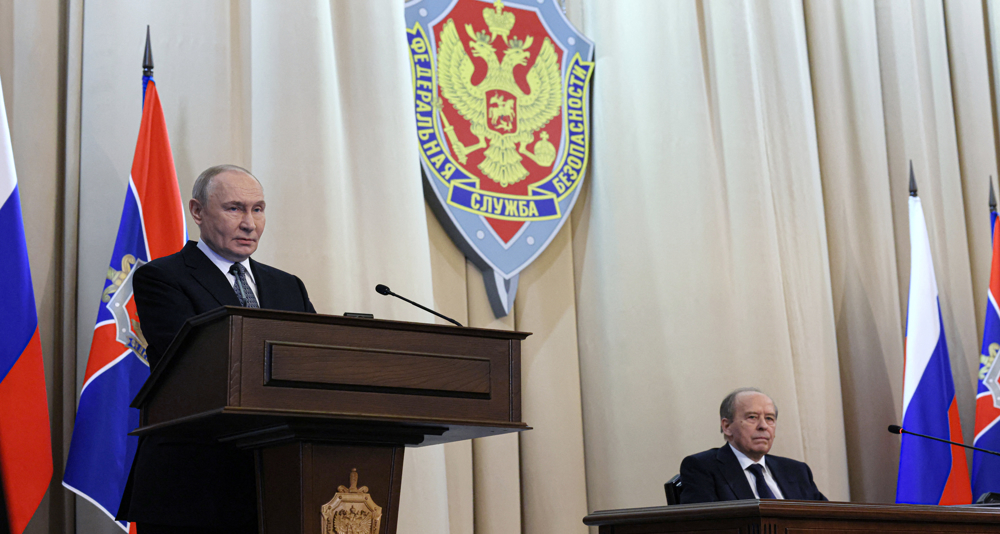
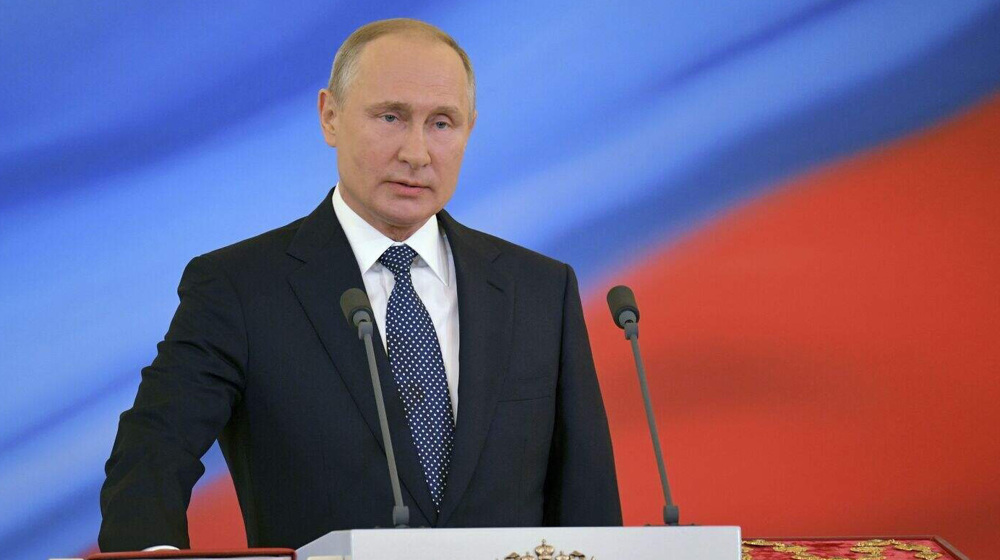



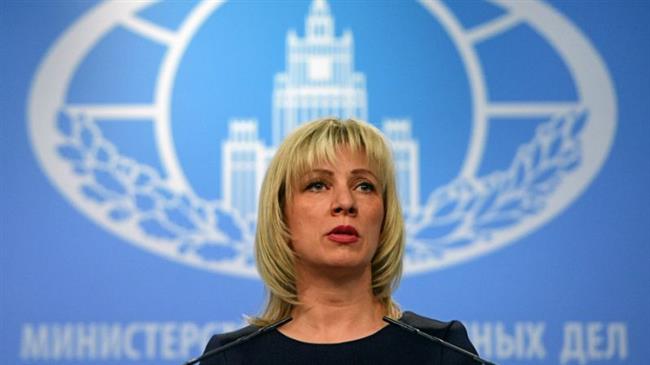

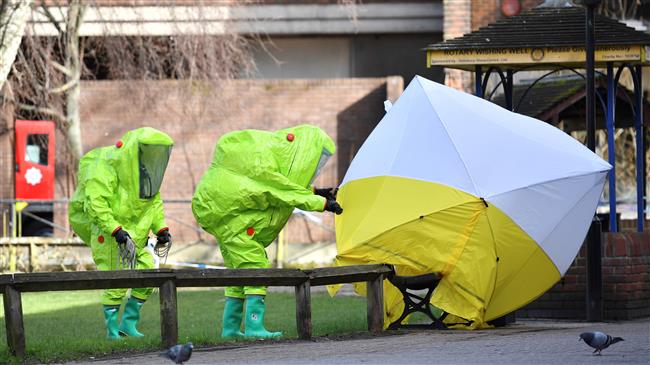


 This makes it easy to access the Press TV website
This makes it easy to access the Press TV website